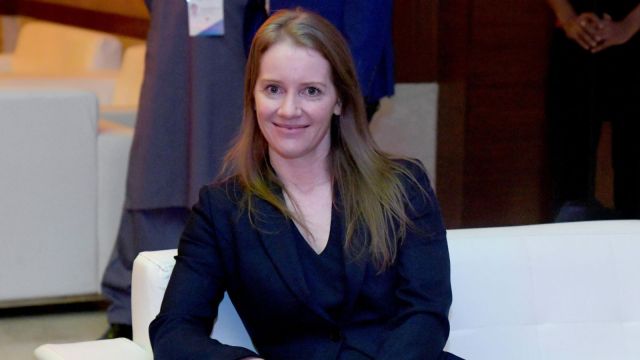Indian hockey turnover: First head coach Janneke Schopman, now long-standing CEO Elena Norman resigns
Elena Norman, Indian hockey federation's CEO who played a significant role in the sport's turnaround, quits in the middle of an ongoing court case, allegations of a 'difficult working atmosphere' and internal politics.
 Hockey India CEO Elena Norman has resigned from her position. (Hockey India)
Hockey India CEO Elena Norman has resigned from her position. (Hockey India) In a toxic, political, and patriarchal world of Indian sports administration, it was an Australian woman who broke the stereotypes, challenged the status quo, and played an influential role in the resurrection of a dying sport. On Tuesday, her 13-year stint came to an end, albeit controversially.
Elena Norman, who came to India as a marketing consultant and rose to become Hockey India’s CEO, resigned amidst an ongoing court case and owing to internal federation politics.
Norman said it was getting ‘suffocating’ for her to continue working in the federation. Hockey India president and former captain Dilip Tirkey, too, told the federation’s board in an email that Norman quit because of ‘unpaid wages and difficult working atmosphere’.
It comes shortly after India women’s head coach Janneke Schopman resigned, claiming she felt disrespected in the federation.
While Tirkey didn’t spell it out, Norman told the Press Trust of India that the ongoing power struggle within Indian hockey between the president and secretary-general Bholanath Singh was one of the reasons for her to quit.
“Absolutely, it was getting tough to deliver in the fight between two factions,” Norman told PTI. “There are two factions in Hockey India. There is (President) Dilip Tirkey and I and there is (Secretary) Bholanath Singh, (Executive Director) Cdr. R K Srivastava and (Treasurer) Sekar J Manoharan. There are guys who want power and then there is (HI President) Dilip (Tirkey) who is a nice guy, only after betterment of Indian hockey.”
The timing of her resignation is also intriguing because the Delhi High Court is currently hearing a plea filed by former India captain Aslam Sher Khan. The case pertained to Hockey India’s administrative issues under former chief Narinder Batra and Norman, and the court ordered a forensic audit of Hockey India’s accounts. The next hearing is scheduled for April.
Yet, she leaves big shoes to fill for her successor, if Hockey India decides to retain the professional structure that Norman introduced more than a decade ago when she became Indian hockey’s first chief executive in 2011.
Back then, the sport was at its nadir. India had missed the previous Olympics, the old federation was disbanded and a new one was controversially formed, the aftermath of a selection scandal could still be felt and unpaid players kept fighting for their dues.
She leaves the sport in a better place. The men’s team has returned to the Olympic podium after more than four decades. Indian hockey, which was virtually bankrupt back then, became financially stable and the players began to enjoy basic comforts that were earlier considered a luxury. The Hockey India League – seen as one of the big reasons for India’s transformation – was launched, discontinued, and will be revived early next year. India became a nerve centre for global men’s hockey, hosting an international tournament every year since 2013, including two men’s World Cups. Although the women’s game did not receive the same level of attention, the team over-performed at the Tokyo Olympics by finishing fourth.
But more than the results on the field, Norman’s biggest achievement would be to not just survive but thrive in a sporting ecosystem bereft of professionalism and where women are barely seen in decision-making roles.
Norman was entrusted with significant responsibility by Batra and together, they controlled the sport for a decade and had a final say on all things Indian hockey.
Her ways weren’t always appreciated by some colleagues, former coaches who were hired and fired at will, and even the players – she once infamously told off then-India captain Manpreet Singh for entering a VIP arena during the 2018 World Cup.
But Indian hockey which slacked for decades got back on track during her reign. While the job is far from done – India still needs a robust domestic structure, the traditional pockets where the sport is dead have to be revived and the women’s game needs proper attention – Norman leaves the sport at a better place from where she started. It’s the current dispensation’s responsibility to ensure India do not slide into an abyss from here.

































